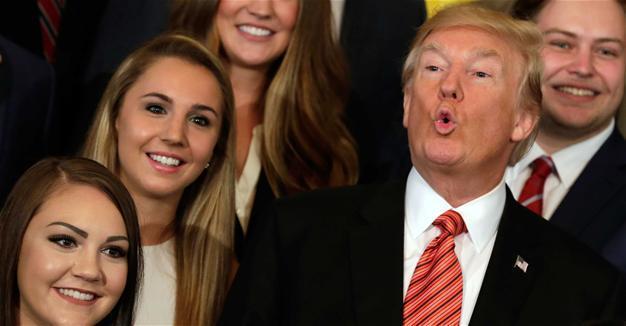US House votes to slap sanctions on Russia
WASHINGTON / MOSCOW

The U.S. House of Representatives voted overwhelmingly on July 25 to impose tough new sanctions on Iran, North Korea and Russia, a move harshly criticized by Kremlin.
The measure notably constrains President Donald Trump’s ability to waive the penalties.
The sanctions package, which passed 419 to three after weeks of negotiations, “tightens the screws on our most dangerous adversaries in order to keep Americans safe,” House Speaker Paul Ryan said after the vote.
The measure now heads to the Senate, where there is support for sanctions but debate about whether to include penalties on North Korea.
The legislation is the result of a congressional compromise reached last weekend and is aimed at punishing the Kremlin for meddling in the 2016 U.S. presidential election and Russia’s annexation of Crimea.
“Under Vladimir Putin, Russia has invaded its neighbor Ukraine, seizing its territory and destabilizing its government,” House Foreign Affairs Committee Chairman Ed Royce said in applauding passage.
“Left unchecked, Russia is sure to continue its aggression.”
The new sanctions is a “serious step” toward wrecking chances of improving ties, Russia’s deputy foreign minister said on July 26.
“What has happened goes beyond the realms of common sense,” Sergei Ryabkov told state-run TASS news agency.
“The authors and sponsors of this bill are taking a very serious step toward destroying the possibilities for normalizing relations with Russia.”
If Trump does sign off on the bill then Russia looks likely to retaliate, with Ryabkov insisting Moscow has warned Washington “dozens of times” that any new sanctions would “not go unanswered.”
But for now Moscow appears to be keeping its powder dry as it waits to see how Trump reacts.
“We are not giving in to emotions,” Ryabkov said.
“We will work to look for ways to move ahead, persistently and consistently searching for ways to compromise of issues important to Russia and the U.S.”
Key among the provisions is one that handcuffs the U.S. president by complicating any of the leader’s unilateral efforts to ease penalties against Moscow in the future - effectively placing him under Congress’s watch.
Trump has faced accusations that his administration had sought to reassure Moscow that sanctions imposed near the end of the Obama administration could be lifted under a President Trump.
Initially, Trump resisted the legislation. But faced with near-total consensus among Republican and Democratic lawmakers, the White House blinked, but did not say directly that the billionaire president would sign it into law.
“While the President supports tough sanctions on North Korea, Iran and Russia, the White House is reviewing the House legislation and awaits a final legislative package for the president’s desk,” spokeswoman Sarah Huckabee Sanders said.
In mid-June, the Senate voted 98-2 in favor of tough sanctions on Moscow and Tehran, but the text stalled in the House.
The bill could end up penalizing European firms that contribute to the development of Russia’s energy sector. European Union member states were due to meet on July 26 and discuss the issue - and a possible response.
Several European nations, including Germany, are livid because the new law would allow punishing companies working on pipelines from Russia, for example by limiting their access to U.S. banks.
The provision could theoretically pave the way for sanctions against European partners in Nord Stream 2, a project to build a pipeline carrying Russian gas across the Baltic that could boost supplies to Germany from 2019.
New sanctions against Iran and its Islamic Revolutionary Guard Corps, which stands accused of supporting terrorism, and North Korea, for its missile tests, are also included in the bill.
With the North Korea sanctions now included, the new measure would need to be passed by the Senate before heading to the White House, likely before summer break begins in mid-August.
Top Senate Democrat Chuck Schumer said he wants the new measure passed and sent to Trump’s desk “without delay.”
U.S. lawmakers, including Republican leaders, have remained wary of the intentions of the billionaire businessman-turned-president - who has called for better relations with Moscow - regarding a relaxation of pressure on Putin.
But even if Trump were to veto the legislation, Congress would likely be able to overcome such a blockage with a two-thirds majority in each chamber.
Iran will respond to any new U.S. sanctions: Deputy foreign ministerIran will respond if the U.S. government passes new sanctions, deputy foreign minister Abbas Araqchi said on July 26, according to state media. New sanctions being discussed in the U.S. Congress are “a completely clear hostile act and against the Islamic Republic of Iran and ... will be met with a definitive response,” Araqchi, who is also a top nuclear negotiator, was quoted as saying by the Islamic Republic News Agency (IRNA).
He did not specify what actions Iran would take.
Separately, Trump issued a veiled threat against Iran on Tuesday, warning Tehran to adhere to the terms of a nuclear deal with world powers or else face “big, big problems.” A week after certifying Iran as complying with the 2015 agreement negotiated by Democratic President Barack Obama, Trump made clear that he remains extremely wary of Tehran.
New sanctions could reduce the benefits that Iran receives from the nuclear agreement, Araqchi said, according to IRNA.
“America has committed to follow the nuclear deal with goodwill and in a productive environment and to hold back from any steps that would have an effect on the successful execution of the deal,” he said.
 The U.S. House of Representatives voted overwhelmingly on July 25 to impose tough new sanctions on Iran, North Korea and Russia, a move harshly criticized by Kremlin.
The U.S. House of Representatives voted overwhelmingly on July 25 to impose tough new sanctions on Iran, North Korea and Russia, a move harshly criticized by Kremlin.